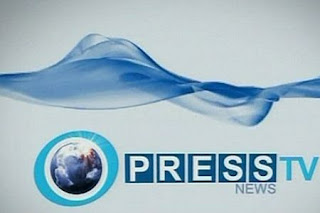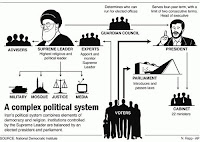Modern Censorships
It was through a simple email sent to the Islamic Republic of Iran
Broadcasting (IRIB) officials that the Media Regulatory Office (MHA) based in
Munich notified of the decision to remove the Iranian English-speaking channel
Press TV from German airwaves. The authority has claimed that Iran’s
English-speaking channel does not have a license for broadcast in Europe. This
shutdown comes after Press TV was banned in Great Britain in January
2012 by Ofcom, the government-approved media regulatory authority.
On its part, the channel believes the decision is part of a strategy by Westerners to silence an inconvenient voice.Press TV drew the attention of the UK public in particular for its coverage of the Occupy protest movement in the United States and Britain, as well as for offering viewers a different perspective on the offensive launched against Libya or Syria.
One recalls that freedom of expression is a prerequisite for any democracy. It can only be restricted by law. Now, in this case, censorship does not stem from a court ruling following the commission of crimes or offenses, but from a simple administrative decision of an obvious political nature.
The Lebanese news channel Al-Manar was taken off the air in a similar manner, first in France, then in all Western states At the time, Al-Manar had been accused of broadcasting an anti-Semitic program, but the examining magistrate never succeeded in establishing the charge and the case was not pursued. Ultimately, it was the Conseil d’Etat (i.e. the administrative court, not criminal court) which banned the channel alleging reasons of public order disturbances in connection with the controversy sparked by the accusation of anti-Semitism, in spite of the fact that it could never be substantiated.
Successive administrative bans in Europe, over the last six years, of Lebanese, Palestinian, Libyan, Syrian and Iranian news channels illustrate the inability of the European Union to address the issue other than to resort to censorship and propaganda and by forsaking the most basic principles of democracy.
Such administrative bans slammed on Middle East television channels clearly aim to prevent EU citizens from gaining a different perspective on the conflicts in this region, even though wars are being contemplated in which Europeans would be brought in. In this sense, such measures are in breach of resolutions 381 and 819 of the United Nations General Assembly, which make it mandatory for Member States to "remove barriers that prevent peoples the free exchange of information and of ideas essential to understanding and international peace. "
The recent Syrian Chemical genocide, proved once more how manipulative public opinions are when there is no alternative coverage. The Canadian minority genocide was one issue never heard of, had it not been for the Press TV. The other side of the ME conflict is the other side of the coin that takes the romantic out of Western viewers illusions of a modern crusade in the region. The accusations of a madman Syrian Dictator ordering such attacks and Western Alpfa politicians claiming to have evidence of it (reminds of Collin Powell at the UNSC with his salt shaker, later admitting all to have been lies).
Yet below is one of those clips that claim, (by Syrian rebels needless to say) to portray Syrian Army troops firing a chemical weapon munition. It is obviously not an Iranian or even a Russian launcher or any sophisticated delivery system as previously postulated....it is appearing to be of a more improvised origin. Had we in the west not banned other news agencies (PRESS TV), we could not have been so easily stultified by the corporate media that only repeat without questions what their sponsors tells them to repeat. One hopes this information make the round and neutralizes this unnecessary saber rattling. Inspectors and freelancers must however go after the real perpetrators that implement such weapons and commit such atrocities only for the sake of starting wars. (With thanks to Voltairenet)




Comments